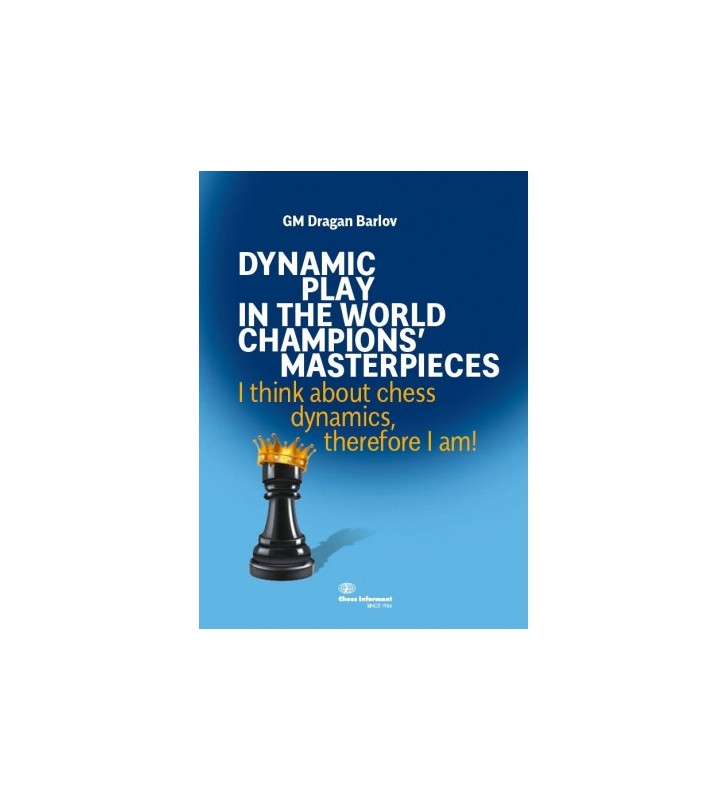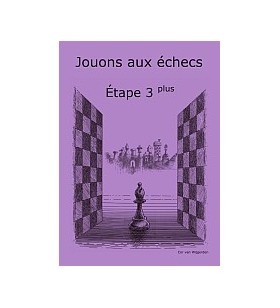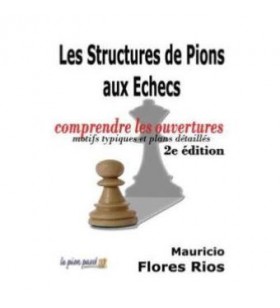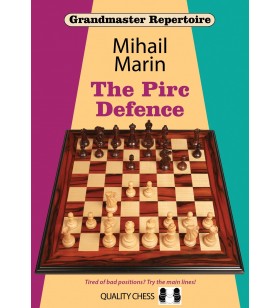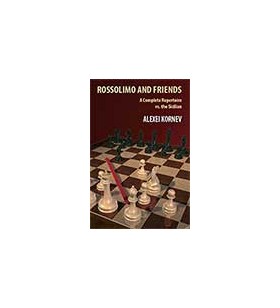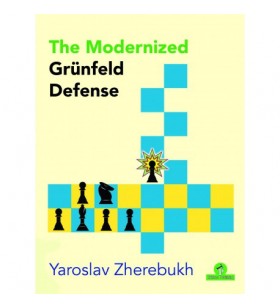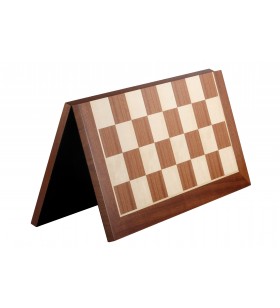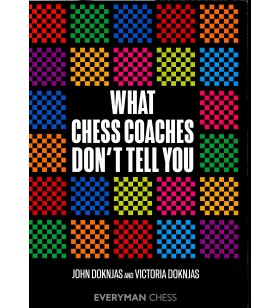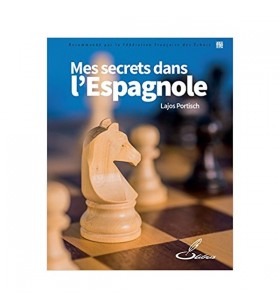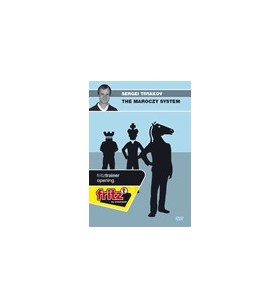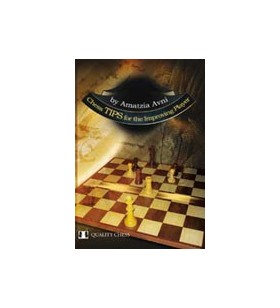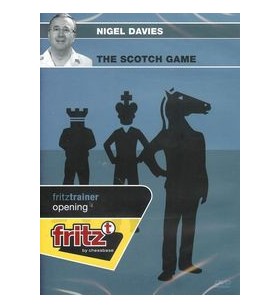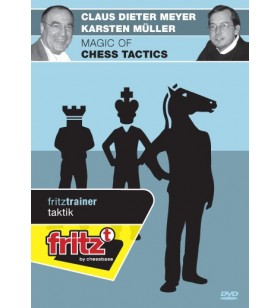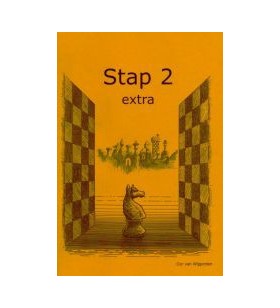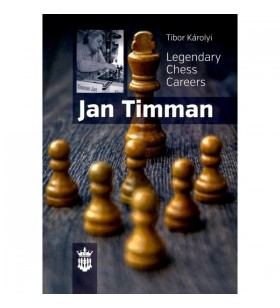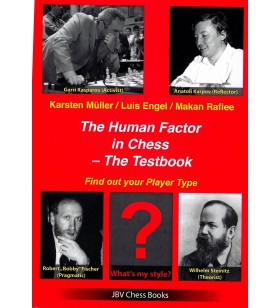- SCHAAK
- DENKSPELLEN
- GO
- BRIDGE, TAROT & KAARTEN
- POKER & CASINO
- PUZZLES & BRAINBREKERS
- DARTS
Barlov - Dynamic Play in the World Champions' Masterpieces
 Livraison sous 48 heures via Bpost*
Livraison sous 48 heures via Bpost*
Gratis levering vanaf €69 (België, Frankrijk, Nederland, Luxemburg, Duitsland)
 U kunt uw bestelling annuleren
U kunt uw bestelling annuleren
Veertien dagen lang!
 Beveiligde betalingen
Beveiligde betalingen
Alle betaalkaarten geaccepteerd.
Specifieke referenties
16 ander product
Schaakbord Mahonie Opvouwbaar met annotatie
afmeting: 48 x 48 cm
Perfekt met schaakstukken n°5.
Doknjas - What chess coaches don't tell you
Are you a parent of a junior chess player who feels that because you don’t know how to play chess, you can’t help your child? Or are you an adult or junior chess player who has taken private chess lessons for years, but feels you haven’t been progressing?
In both cases, there can be a lot of reliance on a chess coach who has been given free rein with lesson content and direction. They probably have some sort of plan but it is likely to be a plan used for all their students. This is not ideal. More important is a well-thought out, individualized plan, that focuses on a specific player’s unique strengths and weaknesses. Formulating such a plan is crucial for making improvements.
Victoria Doknjas and her son John Doknjas are an ideal writing partnership to tackle this topic. John is a FIDE Master who has already established himself as an excellent and highly-respected author who understands the improvement process very well. Victoria has over a decade of experience navigating the competitive chess arena with her three master-level sons, including also running her own chess academy. Together they offer a unique and informative insight to those wanting to get more out of their chess studies, as well as presenting practical advice in areas including:
- Identifying important goals and how to work towards them.
- Understanding how to objectively analyse your games.
- Maximising the efficiency of software and engines for learning.
Reading this book can broaden your horizons in the essential areas of chess study, and ideally let you better evaluate what your chess coach is teaching you. And if you don’t have a chess coach, this book will provide you with an excellent foundation for serious chess study.
384 pages
BAREEV, LEVITOV - From London to Elista
Plus copieux (largement), plus dactualité (relativement) et plus échiquéen (évidemment), ce volumineux pavé vous fera revivre les trois matches de (ahem) championnat du monde disputés par Kramnik entre 2000 et 2006 : linoubliable (contre Kasparov), le crispant (contre Leko) et le regrettable (contre Topalov). Que voulez-vous, passer de Londres à Elista, cest forcément une régression Aux manettes, Evgeny Bareev, qui en plus de son standing était le secondant de Vlad lors des deux premiers affrontements.
TIVIAKOV - The Maroczy System DVD
MEYER, MÜLLER-The Magic of chess tactics DVD
Processeur Pentium à 300Mhz ou +
64MB RAM
Windows XP, Windows VISTA
Lecteur de DVD, souris, carte son
Werkboek : Stap 2 extra
Allereerst komen de oefeningen met bekende thema's uit Stap 2 en een heel enkele uit de eerste stap op een hoger niveau:schaak opheffen mat in een dubbele aanval: dame penning uitschakelen verdediging: wegjagen + hout uitschakelen verdediging: wegl
Muller/Engel/Rafiee The human factor in chess - The Testbook
This approach is intended to enable the reader to assign himself to one of the player types and find out whether he belongs to the activists or rather to the pragmatists, theorists or reflectors. The result allows to draw conclusions in order to further expand the individual strengths or to develop a more universal playing style overall.
Because even if you usually win thanks to your strengths, it makes sense to work on your own weaknesses as well. Of course, if there is only one move in a position, you should be able to find it. Playstyles are especially important in positions where you have a great choice. However, they also play a role when you choose the type of position, which you should strive for based on your style.
Interestingly, a playstyle can also be imitated, which may even be the appropriate strategy against certain opponents. For example, certain characteristics stand out clearly in activists, and being able to adjust to them as an opponent is of course very valuable. A good example is Kramnik's win over activist Kasparov (at the London 2000 world championship match). Since Kramnik always managed to steer the game in the direction appropriate to his style, his big opponent never had the chance to demonstrate his own strengths in positions with attack and initiative.
While 'The Human Factor' was about a clear distinction of the four playing styles, this book aims to emphasize the universality of each player. After solving the tasks tailored to the four player types, it becomes clear how your own competencies are distributed. Accordingly, GM Vincent Keymer states in his foreword:
"Even if the further development of one's own player personality to a universal player who unites all player types may remain a utopia, it's still worth pursuing."

 Français
Français Nederlands
Nederlands English
English